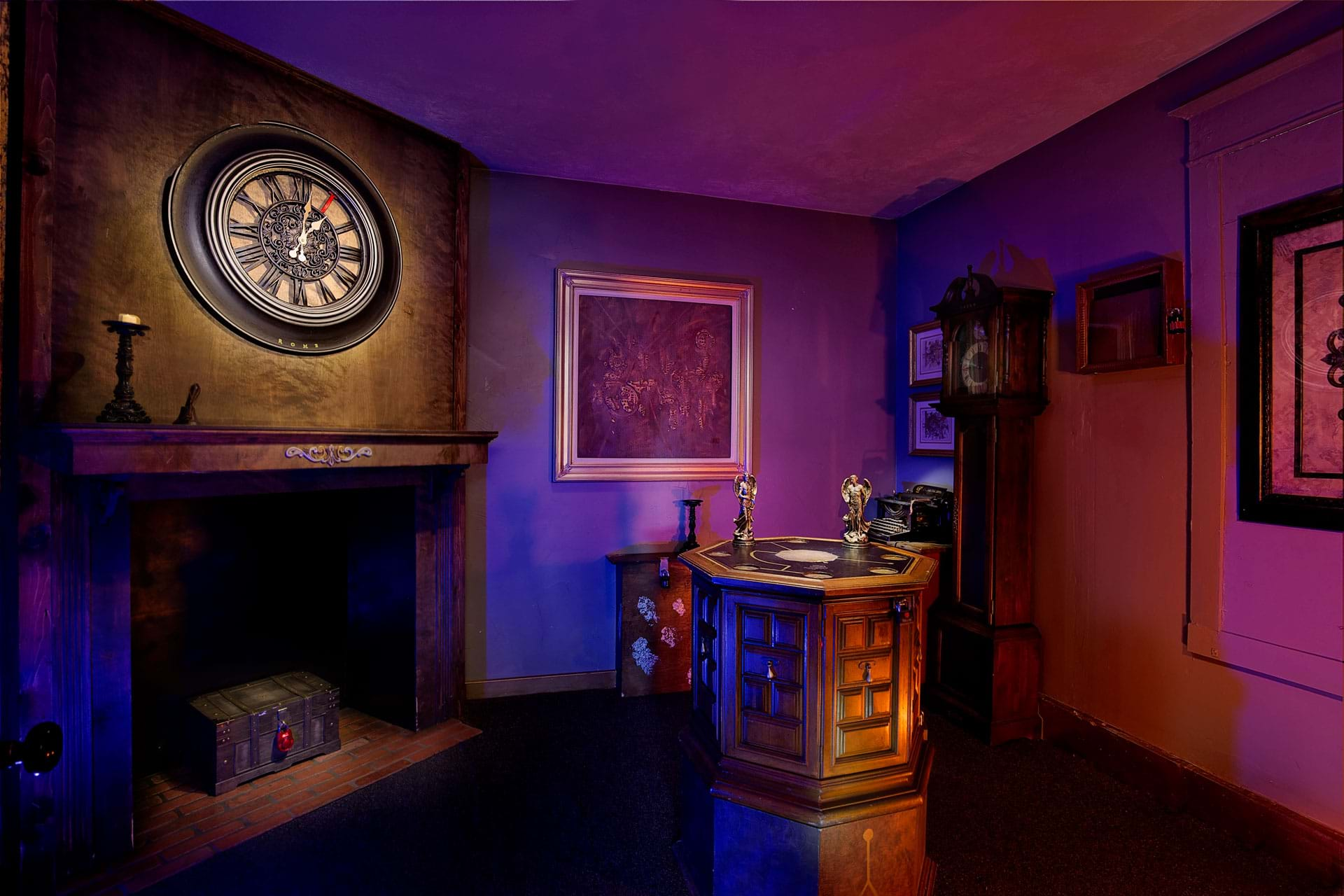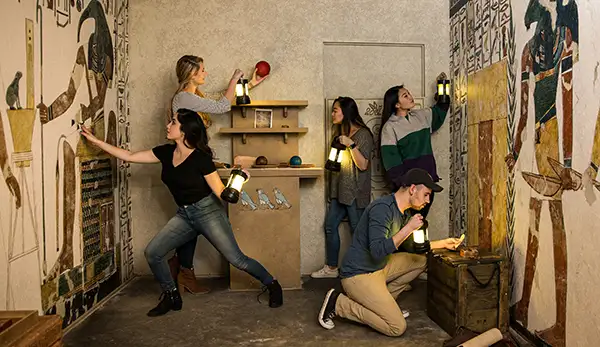Discover the Best Escape Room in Minneapolis-- Interactive and Engaging Fun
Wiki Article
Team Strategies: How to Collaborate Efficiently in a Retreat Room
Navigating the intricacies of a getaway space demands more than mere interest; it requires a well-coordinated approach based in clear interaction, calculated function tasks, and proficient time management. Teams need to proactively pay attention to each participant's insights, appoint functions that align with private staminas, and maintain regular check-ins to ensure emphasis and prevent redundancy. By promoting an environment that values cohesion and versatility, groups can substantially increase their efficiency and success prices. The subtleties of these methods can change the experience, however just how precisely can they be executed to make the most of the capacity for success?Establish Clear Communication

To assist in clear interaction, it is vital to mark a central point of call for information dissemination. Quick, concentrated updates from each group participant can keep the team informed without overwhelming them with info.

Appoint Duties Tactically
While clear communication sets the foundation for effective teamwork, appointing duties strategically makes sure that each staff member's toughness are made use of efficiently. In a retreat area scenario, the time-sensitive and complicated nature of difficulties necessitates a well-organized approach to task delegation. By determining and leveraging specific expertises, teams can enhance their problem-solving capabilities and improve general efficiency.Somebody with an eager eye for information might stand out in finding covert things, while a logical thinker could be better matched to resolving challenges. This function frequently needs strong organizational and social abilities.
Second, make certain that roles are versatile and adaptable. As new challenges emerge, the group must have the ability to pivot, reapportioning jobs as required. This versatility aids keep energy and protects against traffic jams that could take place as a result of inflexible function assignments.
Ultimately, a strategic technique to duty job not just makes the most of the staminas of each employee however also fosters a cohesive environment, driving the group towards a successful retreat.
Use Diverse Skills
Identifying and taking advantage of the varied skills within your team pop over to this site can dramatically elevate your performance in an escape room. Each employee brings special staminas to the table, and properly leveraging these capabilities can quicken analytical and enhance overall performance. As an example, a staff member with solid logical skills could stand out at figuring out intricate codes or patterns, while another with eager empirical capabilities might promptly detect covert ideas that might overlook.
Efficient interaction is vital to utilizing these varied skills. Urge team participants to voice their understandings and ideas quickly, making certain that all possible options are thought about. This comprehensive strategy cultivates a dynamic setting where creative thinking and essential thinking can prosper. Furthermore, designating jobs that line up with each participant's strengths can stop traffic jams and ensure that development is continual.
In addition, variety in abilities commonly converts to diversity in assuming designs, which is very useful in an escape space setting. While some challenges may require rational reasoning and accuracy, others may gain from imaginative and association of ideas. By identifying and leveraging this variety, groups can attend to a wider variety of obstacles more properly, consequently increasing their chances of a successful escape.
Manage Time Effectively

First, allot initial minutes for a fast survey of the space. Identify visible problems and split jobs based on group members' staminas, making certain that nobody is idle. Set inner time checkpoints to examine development regularly; as an example, goal to have half the puzzles solved by the mid-point of the game. This practice can help maintain the click to read more team concentrated and prevent time from sliding away unnoticed.
In addition, stay clear of tunnel vision. If a puzzle is taking also long, rotate employee or move on to one more obstacle, returning later on with fresh viewpoints. Communication is extremely important-- keep every person updated on addressed puzzles and remaining jobs to avoid redundant initiatives.
Lastly, make use of any kind of hints or ideas sparingly but purposefully - best escape room. Knowing when to request assistance can save beneficial time. By adhering to these time monitoring principles, teams can significantly improve their chances of a successful and enjoyable escape room experience
Debrief and Show
Reflection is a crucial facet of group advancement and enhancement in the context of getaway rooms. When the obstacle is completed, whether effectively or otherwise, it is crucial for the group to take part in a structured debriefing session. This procedure enables staff member to examine their efficiency, identify toughness, and pinpoint locations for improvement.Start the debrief by discussing what went well. Highlight specific circumstances of effective communication, problem-solving, and partnership. Recognizing these positive habits strengthens them and urges their rep in future challenges.
Review moments of confusion, miscommunication, or inadequate methods. Encourage an open and useful dialogue where team members can share their perspectives without concern of objection.
Verdict
In conclusion, effective collaboration in a retreat space is based upon clear interaction, tactical function projects, the effective use of diverse abilities, and competent time management. By creating a cohesive and adaptive group atmosphere, the probability of successfully addressing challenges and attaining the goal of running away the area is considerably improved.Report this wiki page